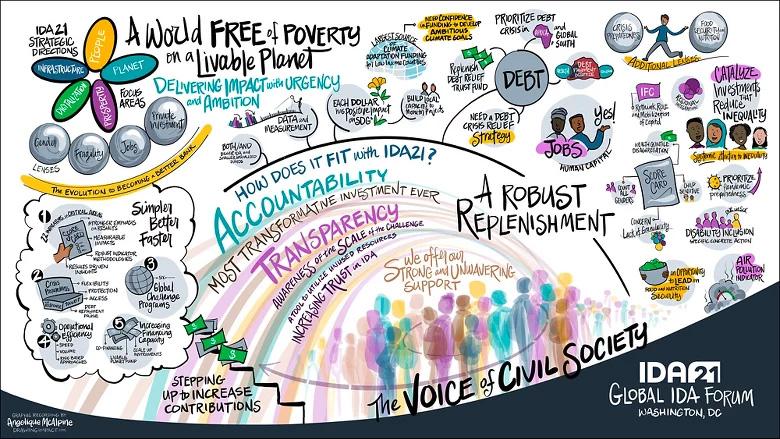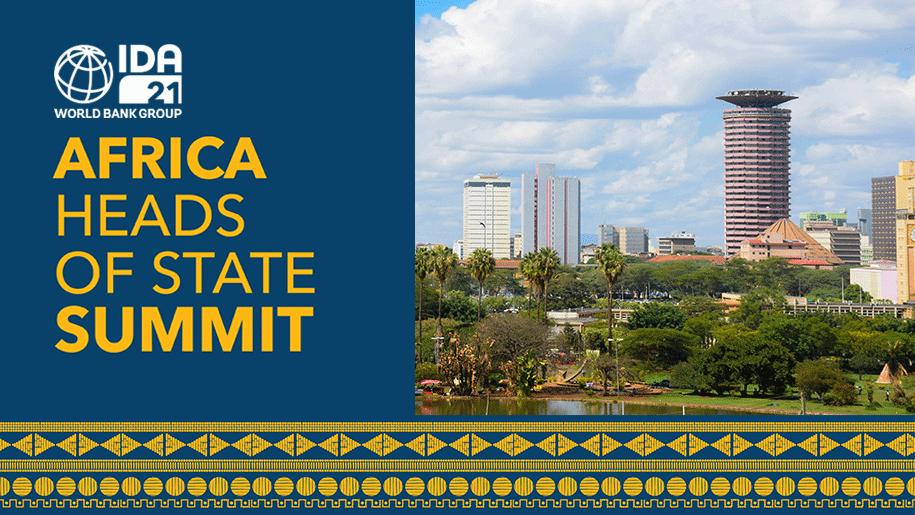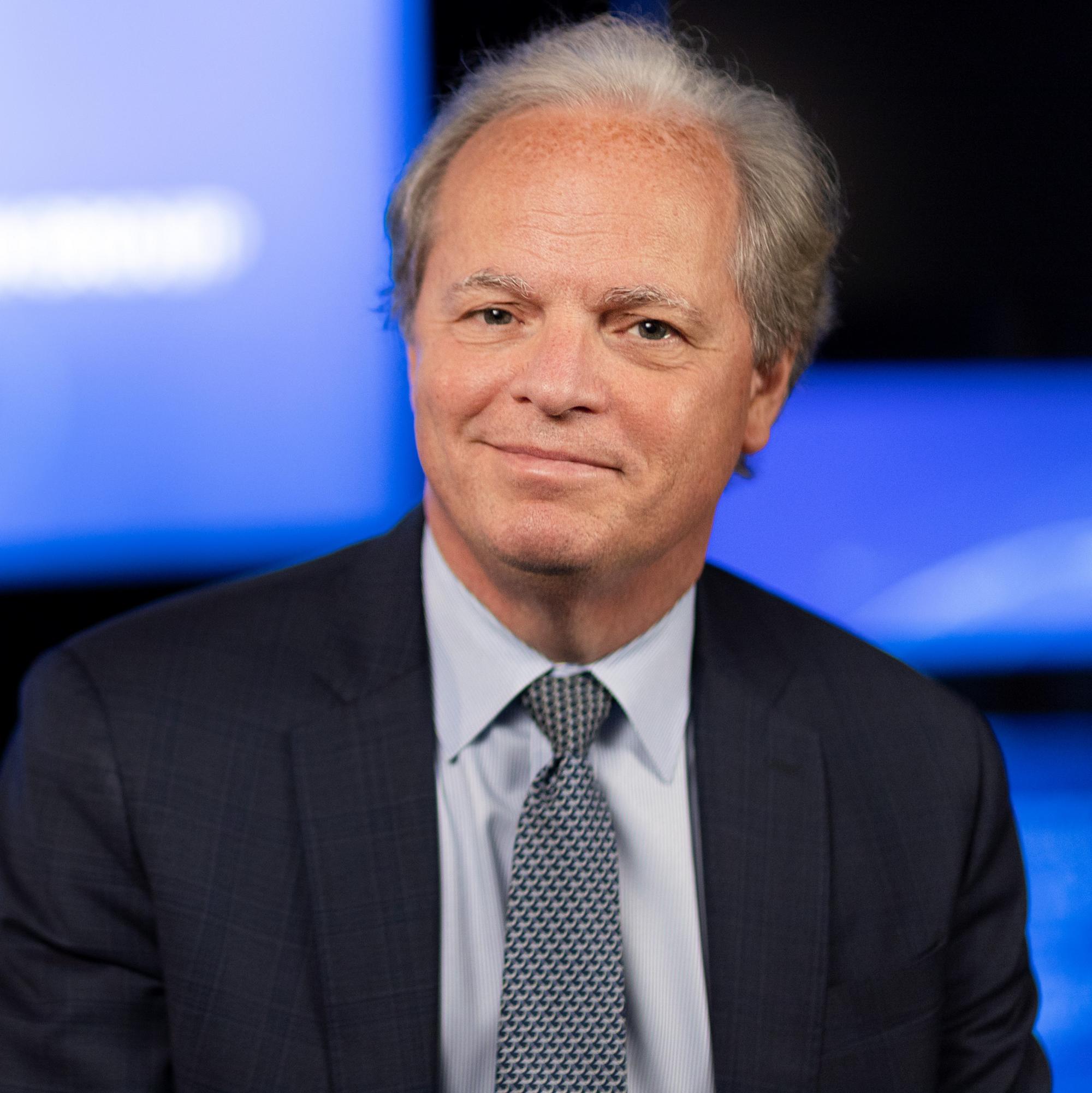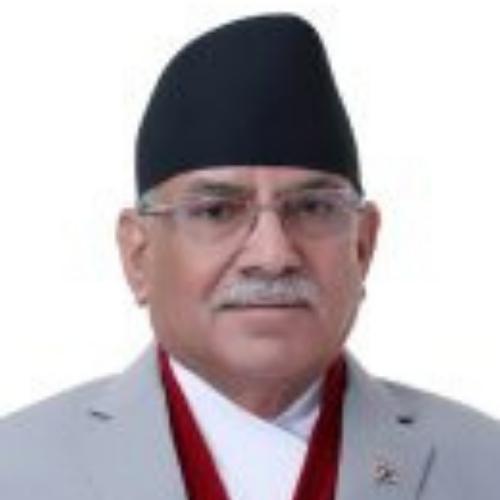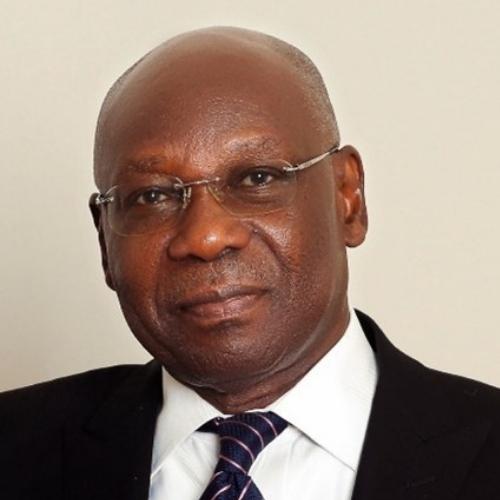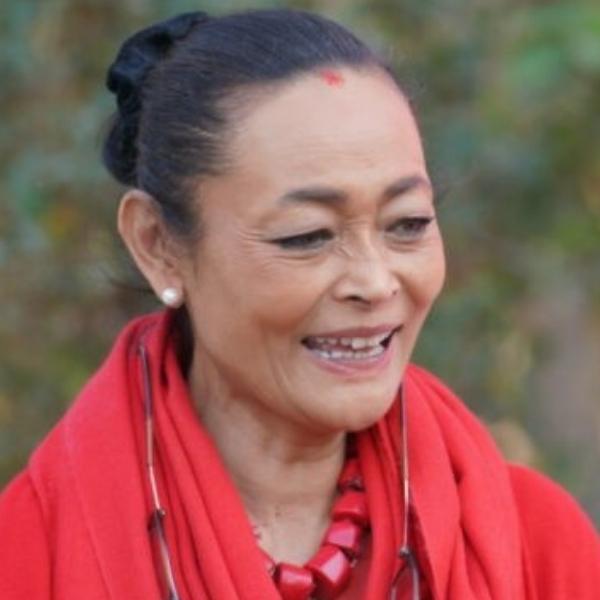[Shivanee Thapa Basnyat] …For the National Anthem of Nepal. [National Anthem of Nepal playing]
[Shivanee Thapa Basnyat] Thank you, high dignitaries, distinguished guests, ladies and gentlemen. Distinguished guests, ladies and gentlemen, let us convene in this very crucial convergence in the truest essence of Nepali traditions, lighting an oil-fed lamp, a lamp that you can see which is right placed right in front of the stage, ladies and gentlemen. Lighting of this traditional oil-fed lamp in Nepali traditions is considered very, very auspicious before any beginning, which symbolically means gaining of knowledge to dispel the internal and external darkness. Please join me as I invite our chief guest, the right Honorable Prime Minister, Mr. Pushpa Kamal Dahal Prachanda, to kindly do the honors... [Music playing]
[Shivanee Thapa Basnyat] The Third Replenishment Meeting is finally open. Thank you to the Right Honorable Prime Minister. Distinguished dignitaries, welcome to the inauguration of the World Bank's Third IDA21 Replenishment Meeting. To all of us joining us through the internet from across the world, thank you for tuning on to the World Bank Live right from the heart of Nepal, Kathmandu. I'm Shivanee Thapa Basnyat, ladies and gentlemen, Senior News Editor with Nepal Television, and very, very much privileged to be steering you through the very inaugural formalities of this major and important convergence here in Kathmandu. We are, as you all know by now, joined in by a distinguished assembly, including the right Honorable Prime Minister of Nepal, who graces us as the Chief Guest. We also have the presence of the Honorable Deputy Prime Minister, the Honorable Ministers, former ministers of the Nepal Government, the Honorable Chief Secretary, as well as the high-ranking officials from the Nepal government. We also have the presence of the respected representatives of IDA donor, and borrower governments, and World Bank's senior leadership in the heart of this beautiful, beautiful city of Kathmandu, where tradition meets innovation. The World Bank's International Development Association, or IDA, has been, as you all are very much aware, has been a committed partner here in South Asia for over six decades now, catalyzing transformative changes to elevate the quality of lives of millions of people across the region. In the face of overlapping challenges here in Nepal and across the region, ladies and gentlemen, the 21st Replenishment of IDA, IDA21, as we fondly call it, is what we believe is a milestone moment in our journey of development and recovery. Today, we will hear from leaders and change makers and learn more about how IDA has delivered tangible impact in South Asia and around the world. A gentle reminder one more time for all of you here and to all of us joining us through the internet. We encourage you all to join on this conversation that starts here in a moment online using the hashtag #IDAWorks. Also, to our guests, hearing interpretation services in French and Nepali is available. We would request you all to kindly make use of the services. Ladies and gentlemen, without further ado, let us set the stage for so many stories that we bring to you here. As we set the stage for these stories of change and resilience with a video giving us a glimpse of the Nepal IDA Partnership. [Video starts playing]
[Narrator] A landlocked country in the Himalayas, Nepal is home to over 30 million people. It's a country shaped by centuries of tradition and inspiring resilience amid conflict, natural disasters and other challenges. For more than 60 years the World Bank's International Development Association, or IDA, has been Nepal's steadfast partner and a dependable source of financing and knowledge. IDA has transformed the lives of millions of Nepalis with investments in education, health, jobs, infrastructure, and food security.
[Pushpa Kamal Dahal Prachanda] IDA financing is crucial for IDA recipient countries to tackle key development challenges and attain sustainable development. IDA financing is not just a support but a strategic investment in global stability and prosperity ensuring low-income countries are not left behind.
[Narrator] For example, IDA hydropower investments and sector reforms are fueling sustainable energy for millions of Nepalis.
[Sumitra Thakuri] Electricity has made many aspects of our lives easier. Business activities are increasing. Children can now study more effectively. Additionally, businesses can now operate until 11 – 12:00 pm.
[Narrator] IDA support has bridged distances upgrading 2,900 km of all-weather roads and building 10,000 meters of new bridges.
[Sukra Raj Chettri Since the road was improved, traffic flow has improved significantly. It has also become more convenient for people coming from villages to conduct business.
[Narrator] It doesn't stop there. Together with IDA, Nepal changed lives and delivered impact across sectors of the country. Almost all children go to school and gender parity was achieved in primary education. Infant mortality has significantly declined. More than 1,4 million people have access to clean drinking water. Over 300,000 resilient homes were rebuilt after the 2015 earthquake. 240,000 farmers benefited from improved livestock value chains. Tiger numbers increased significantly, indicating a healthy ecosystem. Above 3,5 million people receive social security allowances directly in their bank accounts. Employment service centers were established nationwide to facilitate jobs for the youth, especially women.[Barsha Man Pun] IDA concessional financing acts as a lifeline and as an enabler of investment in development activities, particularly in social economic infrastructure and climate actions. This support is essential not only for addressing immediate development needs, but also for investing in long-term sustainability and resilience.
[Narrator] Now on its homegrown path of Green, Resilient, and Inclusive Development, or GRID, Nepal's government is prioritizing 10 transitions to be financed with 110 billion dollars in investments over 10 years. IDA and its 21st cycle will be at the heart of the blueprint for the transitions, which include sustainable transport, renewable energy, and better air quality.[Farid Hadad-Zervos] As Nepal embarks on its journey to a federal state with inclusive growth, IDA will be crucial to delivering on the promise of Nepal's transformative homegrown Green, Resilient, and Inclusive Development agenda. The World Bank Group is committed to helping Nepal build an inclusive and resilient future on a livable planet. [Narrator] Join us as we transform the lives of millions more in years to come. [Video ends]
[Shivanee Thapa Basnyat] It's with much pride that we make this call to you all and to everyone, the stakeholder community across the world, ladies and gentlemen. And yes, it is in fact, really with a wide grin that we showcase these ideas, a journey of development partnership that continues to uplift lives across this beautiful nation. And on that very note, ladies and gentlemen, it's my pleasure now to introduce the IDA21 co-chairs who will extend a bit of warm words, and especially focusing on extending the formal welcome, and frame the significance of the next four days of Replenishment Meetings under this roof. Please, join me, ladies and gentlemen, now in by welcoming Mr. Sheku Sambadeen Sesay, Independent IDA Co-Chair, and Mr. Axel van Trotsenburg, the IDA21 Co-Chair, and World Bank Senior Managing Director.
[Axel van Trotsenburg] Good morning, everybody, and also online. Good afternoon and good evening. It is a real pleasure to be here in Kathmandu. I would really like to extend on behalf of all my colleagues here, our sincere gratitude to the government of Nepal for hosting this event. And a special thank you to you, Honorable Prime Minister, for joining this opening. Thank you very much. I'm also very pleased to, again, be joined by my Co-Chair and friend Sheku. And colleagues, as we all know, we are here at the critical juncture in the IDA replenishment process. It will be the Kathmandu days, four days of hard work, but where, really, we need to look at how we can build the broadest possible coalition in support of the IDA countries. We're all on our way, and I think we need to continue working on this. Similarly, as you just saw, IDA works. And IDA works. It works on results orientation, and we are long term partners. And what is very, very important in this with IDA works, it works because we have these strong partners between the donor countries as well as with the beneficiary countries. Our challenge here is, really, to continue this fine tradition to build the strongest possible coalition. I think that this video which was shown is it's not only today but it is actually over the decades where we are a long-term partner. And that is actually what we always need to keep in mind that this long-term partnership matters.
[Sheku Sambadeen Sesay] Thank you very much, Axel. Let me join you in welcoming all the participants today, and to extend, joining also in extending my heartfelt thanks for all the facilities and courtesies that have been extended to us since our arrival that I hope will make our deliberations successful and fruitful. As Axel has already said, it's not just in Nepal that IDA has success stories. IDA works similarly across 75 countries around the world. On a personal note, if I look at my own country, I come from Sierra Leone. IDA has contributed a lot. You’ll recall, Sierra Leone experienced 10 years of civil war and a lot of our infrastructure was devastated, destroyed, buildings, personal property, and there was a serious brain drain. IDA moved in swiftly with reconstruction work, rehabilitation work, and today, at least, we are at the stage where we have the preconditions for takeoff. There are teams that unites us across the board. From Latin America, Asia, Africa, one of the words that keep coming up is “resilience.” Resilient societies with dedicated youth. Resilient health systems, resilient buildings. Yeah, Axel?
[Axel van Trotsenburg] Well, I agree was Sheku that when we talk about resilience, this is coming up a lot, but it is not only. We're talking about human capital, infrastructure, digitalization, jobs, etc., what we are discussing. I think since we started this journey on IDA21 negotiations, we have received great feedback from you through the last couple of months, but also from the beneficiary countries, and that is what matters. This support is actually encouraging. I think all of you here in the room have done also a great job in helping us to push this ahead. And ultimately, we need to keep the focus on a very robust IDA replenishment. because that will guarantee the successful continuation of our partnership with the beneficiary countries.
[Sheku Sambadeen Sesay] A wonderful example of this feedback is what we heard in Nairobi at Heads of State Summit in Nairobi in April. 19 Heads of State gathered from across Africa. That's a great show of solidarity. A historical show of unity. Leaders assembled at a major summit committed to focusing in development aspirations across the continent. This ambitious agenda, aiming to dramatically improve lives and create new opportunities, highlighted IDA as a cornerstone of success. And we actually have a video later showing the highlights of their call to action. The context... That's you, Axel, please.
[Axel van Trotsenburg] Yeah, one of the parts what we need always to keep in mind, and we got these reminders not only at COP, but also at the United Nations General Assembly last year, that the SDGs [are] off track, climate change is a challenge, and we have many more conflicts around the world. So, it is really positioning IDA to help work in this difficult operating environment and make a difference. We can make a difference, and the results show, also the video shows this. This is where the partnership is going, again, to matter, but also the solidarity.
[Sheku Sambadeen Sesay] The IDA replenishment process is a testament to this solidarity. We are grateful to about 100 representatives of IDA donors and borrower representatives who are here in Kathmandu for these critical meetings. Let me also add that I see IDA as a full package. IDA brings technical assistance, it brings knowledge. IDA builds capacity. IDA affects policy change. IDA has a convening power. I would also like to speak as a policymaker from Africa, and as someone who has worked across most of the African countries, including Nigeria, Liberia, Ghana, Ethiopia, Tanzania, quite a good number of countries. My experience is that IDA's package is critical. These elements were important for my work as a policymaker in Africa. As I saw IDA contributing as a package, in most cases co-financing with countries that cannot and cannot afford high interest rates, highly concessional, that makes sure and packaging technical assistance with sectorial projects. Those type of advantages IDA brings and the convening power that IDA has. All donors mostly like to hear is to say IDA is leading and they are prepared to join.
[Axel van Trotsenburg] In conclusion, I think what will be ahead of us for the next couple of days is to bring us all together, but also that everybody will assume their responsibilities, but also push the agenda further. So, it will be also for the beneficiary countries to actually embrace a very proactive, results-oriented program. It will be for the donor countries to see how that package could facilitate the maximum generosity when the pledging comes. It will be to the Bank to see how we can also do more, and actually see how we can contribute even further to a successful outcome. Not to forget civil society that needs to provide, also, the continuous support for IDA. And here, I think, particularly [is] the solidarity that matters. Only together will we have a fighting chance to be successful. So again, I would like, again, to thank the government of Nepal for its generosity to hosting it, but also looking with Sheku forward to the next couple of days of great discussions.
[Sheku Sambadeen Sesay] Thank you, Axel. I'm looking forward to kickstarting and continuing that process in the next four days. There will be an intense few days, but I look forward to having these conversations and the follow-up actions that ensue as everyone commutes to doing their part. Thank you very much.
[Axel van Trotsenburg] Thank you.
[Shivanee Thapa Basnyat] Thank you, Co-Chairs. Thank you indeed. May I invite you to be seated back in the front row Thank you so much for shedding light on the context of this convergence and putting the spotlight on collective actions. Certainly, optimism, determination, and a steadfast belief in our collective ability does make a difference, and our journey has been an exemplary one to this. Ladies and gentlemen, as the Co-Chairs just mentioned, our historic show of support for IDA took place in Nairobi not too long ago. Let's hear from some of the African Heads of States and their testaments on the power of IDA. May I draw your attention towards these screens now? [Video starts playing]
[Ajay Banga] We are here united by a shared vision for the future of Africa, a continent that is rich in diversity, in culture, in potential. Today, we are focused on a brighter future for every country on the continent and the people who call it home.
[William Samoei Ruto] IDA stands out for its rapid, undecisive action during crisis, distinguishing itself from other funding sources.
[Julius Maada Bio] If Africa is to meet the targets of SDG 8, “decent work and economic growth” by 2030, we must act now to transform the working-age population into productive forces with more decent and inclusive jobs, especially for our women.
[Dr. Lazarus McCarthy Chakwera] One of the secrets to our survival and recovery has been the World Bank's IDA, which I've described as Malawi’s trusted and reliable ambulance in addressing the structural imbalances on the physical, current account, and monetary side, occasioned by the shocks we have encountered.
[Samia Suluhu Hassan] History attests to the transformative potential of IDA support for countries to transform and graduate. It is on this basis that Tanzania also calls for an ambitious IDA replenishment that matches Africa's development aspirations with the resource [it] needs.
[Hassan Sheikh Mohamud]nWe require the upcoming IDA21 replenishment to be of the scale and ambition that will help shift the situation from fragility to resilience and growth in Somalia
[Mohamed Ould Ghazouani] The cost of inaction would be exorbitant in terms of fragility and precarity, and also there would be loss of human lives, and also loss of opportunities for development. We could avoid such a scenario by making sure that Africa is still on the path of inclusive and sustainable growth.
[Sella Bogonko] As young people, we're not merely asking you what you can do. We're availing ourselves so that we can co-create the solutions that need to be created specifically for young people. One in particular that I must mention is the systems-change approach to development that allows for job creation being mapped within all the projects while scaling the continent's workforce.
[William Samoei Ruto] By fortifying IDA, we do more than just honor these values. We significantly enhance our joint ability to tackle global challenges. Let us value and expand the reach and influence of this vital resource. Together, let us be bold, let us be ambitious, and let us act with conviction.n[Video ends]
[Shivanee Thapa Basnyat] Voices of leadership, ladies and gentlemen. Strong voices, voices that are inspiring and provoking action. And reaping from all these, we are not going to stop here. We certainly are looking towards a future which is both prosperous and brighter for us all. Saying that, ladies and gentlemen, allow me now to pave the way for yet another inspirational voice of a business leader and a philanthropist from right here, the place you are gathered in, Nepal. Here to walk us through the story of Nepal's development transformation, ladies and gentlemen, is Ms. Sangita Shrestha [Einhaus], the Managing Director of The Dwarika’s Group of Hotels and Resorts. Please, join me as I welcome her on stage. The floor is all yours now.
[Sangita Shrestha Einhaus] Namaste, and a very good morning to all the distinguished guests here in this room, and to all a warm greeting to all the people that are watching online. It is wonderful that the 21st Replenishment Meeting of IDA is happening in Nepal. It is an honor for us, and we're happy about this. A warm welcome to all the visiting guests to our country. Actually, I am very overwhelmed, but at the same time, I feel blessed and privileged to be standing in front of all of you, you who are leaders, decision makers, policymakers, and you have made a difference to millions of lives of the people of this world and the planet. I am Sangita Shrestha. I am not an economist, nor a development expert. I am just very passionate about my country. I believe in it, and I want all of you to be passionate about my country, too. Let me tell you the story of Nepal, its transformation, and the potential I see in my experience of being a Nepali who is now also over 60 years. Nepal is a country of highly diverse and rich in geography, culture, and nature. It's a home of 126 ethnic groups and subgroups, made up of people that are resilient, gracious, strong, and very hospitable. A country rich in the cultural, architectural, natural heritage with deep roots in Buddhism and Hinduism. It is the land where Buddha was born. I come from a Newari family with values of cultural heritage and traditions that have shaped how I think of the world and our place in it. I work in the tourism and hospitality, and agricultural sector, where we have established and operated the Dwarika's properties and farms that actually support, believe in the preservation, conservation, and revival of the architectural, cultural, and natural heritage of this country. It is a success story that we have of sustainable heritage conservation. We give importance to using all the products that we have in our companies, in our operations, in the items we use as being local. It's only the technical things that come from outside. The reason we do this is so as to support and enhance the local skills, and make sure that these skills and products stay alive. This is why we say, “Let's go local.” We're active in responses to the natural disasters that happened in my country, and through that, have been privileged to be close to the grassroots and understand the needs of Nepal. This has been our journey and is still the journey we take. Nepal's journey for the last few decades has not been easy. Its topography and geography make it vulnerable to the natural disasters, such as floods, landslides, and earthquakes. Nepal is one of the most vulnerable countries to climate change. The monsoons are ferocious, and the dry seasons ruin more crops. Increasing air pollution hides the beautiful mountains for days and weeks, with a strong and long-lasting impact on people's health. A decade-long conflict in 1996 to 2006 put this country's development at a standstill. In 2015, the country reeled from a devastating earthquake that led to a loss of lives, livelihoods, and property. More recently, the COVID-19 also has also [audio cuts off] jobs. But in spite of all of these challenges, these setbacks, I have experienced and witnessed the journey of Nepal's transformation in these last 60 years, and I feel proud of the achievements of my country. In the 1950s, Nepal's literacy rate was just 2%. Only one out of a thousand children went to school. Today, almost all children go to school. The success story is that the female enrollment in schools is at par with the male enrollment and on an increasing scale. In the early 1970s, Nepal's road network spanned just 2,700 kilometers. Today, it stretches over 60,000 kilometers with improved urban and rural transportation, infrastructure, upgradation to all weather roads, and road safety. Development of hydro and renewable energy projects improved electricity access to 53% in 2010 to today, 95% in 2022. That is an achievement. The health sector has seen a big improvement in maternal and child health care. Maternal and infant mortality has significantly decreased. Health sector, services and systems, nutrition, HIV/AIDS control, health service reforms have all been strengthened, not to forget the response to the COVID-19 vaccines. It's amazing that fewer than one out of a thousand Nepalis had a telephone in 1970. Today, every two Nepalis in three own a cell phone. This is a huge shift, and there's been a huge shift in upgradation in digitalization, online services. Until 1970, only 5% of the Nepalis had piped water. Today, 85% of the rural population has access to clean water, and 81%, access to sanitation. Approximately 800,000 earthquake-resistant houses and buildings were rebuilt. Majority of our heritage sites and monuments have been brought back to its original glory. Nepal grew trees, forests, from 25% to 45% in the past 30 years. I see the hills are green again. Poverty declined from a 25% to 3.6%. This is progress and development. The Nepali people, together with the government, worked hard for these gains; but this would definitely not have been possible without the support and the partnership from our international partners and IDA. You have helped transform the lives of millions of Nepalis through your investments in education, health, job and skills, connectivity, infrastructure, social protection, food security, and biodiversity conservation. You have been a trusted partner in Nepal's sustainable development in the last 60 years. We need and count on the funds, on the knowledge, on the capacity-building that you provide. And I, representing the common citizens of this country, and maybe, if I may humbly also represent the recipient countries, hope this support will be enhanced and broadened even more after your deliberations these four days. I sincerely thank IDA and the World Bank for all the support my country has received with this partnership in sustainable development. Before I conclude, just a quick mention of a few thoughts for Nepal, what needs to be looked at in the future. Coming from the tourism sector, obviously, I'm going to address that first. Expand the potential of tourism with quality and not just numbers. Increase the number of nights spent in this country through developing and curating new products, and new destinations within the country. Attracting new segments of the tourism market like senior citizens, takers for well-being, spiritual experiences, and seekers. With the three distinct ecological zones that we are blessed with in Nepal, it gives us the opportunity for agriculture to modernize and above all, to revive the Indigenous crops, herbs native to this country and make [them] as a niche, high-end, high-income product for Nepal. A need to strengthen the value chains, create opportunities, this is very important at the moment, for the Nepali youth so they stay in this country. And those that have left for abroad, they come back to realize their potential and build the nation for themselves and the future unborn citizens of this country. The women in this country represent a huge potential, and that has not been adequately utilized. They constitute 50% of the population, contributing to the economy through their paid and unpaid work. Recognizing, integrating, and empowering them will be crucial to Nepal's development. My country has potential, enormous. Nepal is landlocked and sandwiched between two great nations, India and China, making it geo-strategically very important and full of opportunities. I am hopeful for our future, but we need your continuous support, partnership. We need to learn from the global lessons, so Nepal can stay in the path of growth and sustainability sustainable transformation. Once again, thank you so much. I leave with the wish that all of you came to our country as guests, and you will leave as ambassadors of Nepal. I wish this 21st Replenishment Meeting a tremendous success. Thank you and Namaste. [Applause]
[Shivanee Thapa Basnyat] Thank you, Sangita, ma'am. Thank you so much for walking us through Nepal's very proud journey, and especially for putting the spotlight on the prospects and opportunities ahead. It's always a pleasure to be listening to you, people who have led optimism and the changes from the forefront. Said that, ladies and gentlemen, this now gets us set for the keynote. Please, join me as I humbly invite our chief the Right Honorable Prime Minister, Mr. Pushpa Kamal Dahal Prachanda, for the keynote address [Applause]
[Pushpa Kamal Dahal Prachanda] Very good morning and Namaste to everybody. Honorable Deputy Prime Ministers, honorable ministers, Senior Managing Director of the World Bank and Independent Co-Chair, distinguished delegates, participants, ladies, and gentlemen. It is an immense honor to host this important IDA21 Meeting in Nepal, a country renowned for its natural beauty with enormous development potential and resilience. On behalf of the government of Nepal, I extend heartfelt greetings to all the esteemed IDA deputies, borrower representatives, World Bank management teams and the entire IDA family. This gathering is not only a testament to our collective commitment to sustainable development but also an acknowledgement of the challenges we are facing, particularly by ensuring much-needed development finance to the recipient countries for the next three years. Nepal has been an active IDA borrower for over six decades. At this point, I want to remind us that we are celebrating 60 years of IDA impact. This did not happen overnight. The impact is because you stayed with us over the course of our journey. During this period, IDA has been a major source of development finance for us and has delivered impact. With this support, Nepal has achieved significant outcomes in infrastructure building and social development in an overall sense. We highly appreciate the World Bank's support in rebuilding our country after the devastating earthquake of 2015. We would like to request you to continue the same moving forward. I agree that we have capacity constraints in a new federal context, project execution performance is slowing and spending is low. We may need to restructure our policy frameworks, but policy changes cannot take place overnight in a democratic system. That’s why you are here, to support us with patience to continue our development aspirations, to increase the speed and impact of IDA and to build a common hope. As our journey is far from complete, we require more resources to sustain and accelerate this progress. I am deeply touched by the proposed focus areas of IDA21, which align perfectly with our core priorities; human capital, environmental sustainability, poverty reduction, energy access, connectivity, and digitalization. Additionally, addressing gender, jobs, fragility, and private investments as key guiding areas of our development is crucial. I believe the IDA21 policy package embodies a strategic, streamlined, and outcome-oriented approach to international development, designed to maximize the impact of investments and support for client countries. Distinguished delegates, for least developed countries like Nepal, concessionality is critical. We are vulnerable to multiple crises, and there is a genuine risk that our hard-won development gains could be reversed. Climate change impacts have further increased our vulnerability. Nepal, despite contributing negligibly to global emissions, is disproportionately affected by the adverse effects of climate change. We are advocating for climate justice to compensate for the loss and damage incurred due to circumstances beyond our control. After having political stability, Nepal is now firmly on the path to economic development, harnessing its untapped potential. Our strategic location between two of Asia's largest economies, our abundant hydropower resources, thriving tourism and agribusiness sectors, and our young hardworking population are our key strengths. However, we have faced significant challenges, including episodes of devastating earthquakes, disasters, global pandemic, and global economic headwinds which have caused substantial output losses and hindered our progress towards economic prosperity. In order to ensure sustainable and resilient growth, are adopting our homegrown Green, Resilient, Inclusive Development approach, prioritizing ten key transition sectors and actions to be accomplished over the next decade. Nepal’s development priority and GRID approach align with the World Bank evolution roadmap and global challenge programs. IDA’s commitment to strengthening country-driven models will empower countries to take ownership of their development agendas, foster inclusive stakeholder engagement, and build robust institutions and systems. It is important to create a more equitable and resilient global development landscape by provisioning a programmatic approach that allows implementation flexibilities to the recipient countries. Realizing this fact, we wish to closely work with IDA and other stakeholders to streamline this approach in the IDA21 cycle. Distinguished delegates, please allow me to recall that advanced economies reaped substantial benefits from the Industrial Revolution due to their early adoption of mechanized production, access to capital, and ability to invest in infrastructure and innovation. This period marked a dramatic increase in productivity, economic growth, and improvements in living standards. In contrast, mainly least developed countries were left behind largely due to inadequate infrastructure, limited access to capital and technology, and political instability. These factors delayed their industrialization, technological advancements and economic prosperity. I believe, the time has come to address the development challenges of these countries, that were left behind during the Industrial Revolution, to ensure global peace and shared prosperity. By fostering collaboration and providing equitable access to resources, technology, investment, we can address historical disparities and promote inclusive growth. Strengthening international partnerships, enhancing capacity-building, and supporting sustainable development initiatives in those countries will not only uplift these nations but also contribute to global stability and economic resilience. Despite our concerted efforts to accelerate inclusive growth, we face fiscal constraints, deficits and increasing debt servicing obligations, which create a substantial resource gap in financing our Sustainable Development Goals, Nationally Determined Contributions, and infrastructure development. Our domestic resources alone are insufficient. Therefore, we aim to leverage private capital, attract Foreign Direct Investment, generate additional employment opportunities, accelerate economic activities, and enhance domestic revenue mobilization while considering changes in the financing landscape after graduation from LDC status in 2026. Our priority must be investing in human capital, particularly in health and education, as well as developing quality and resilient infrastructure and transforming of lives of our people. Emphasizing digitalization, investment in productive sectors, fostering entrepreneurship, and enhancing skill development are essential to creating jobs, promoting inclusivity and accelerating growth. Together, our utmost responsibilities are towards climate action, responding to fragility, supporting small states, and ensuring water and food security. I am confident that this august gathering will succeed in building a strong consensus among donors and borrowers on policy priorities and result frameworks for next three years. More importantly, I believe we will agree on the necessity of record-high pledges to address the unprecedented crises of our time. I would like to witness the vast impact of IDA in recipient countries including Nepal, and to the importance of these resources to help us realize our full potential. Before I conclude, I wish this Meeting a grand success and hope you have a pleasant and memorable stay in Nepal. Our beautiful country will surely leave you feeling that one visit is not enough. With the spirit of our culture “Atithi Devo Bhava,” you all are well taken care of. The government of Nepal is committed to providing all necessary support to ensure the success of this important event. Finally, I would like to express my sincere gratitude to the World Bank Group management and the IDA family for their trust in Nepal and longstanding cooperation in our development endeavors. Thank you. Thank you very much for your attention [Applause]
[Shivanee Thapa Basnyat] And thank you very much, the Right Honorable Prime Minister, for your inspirational leadership and for your insightful keynote.


